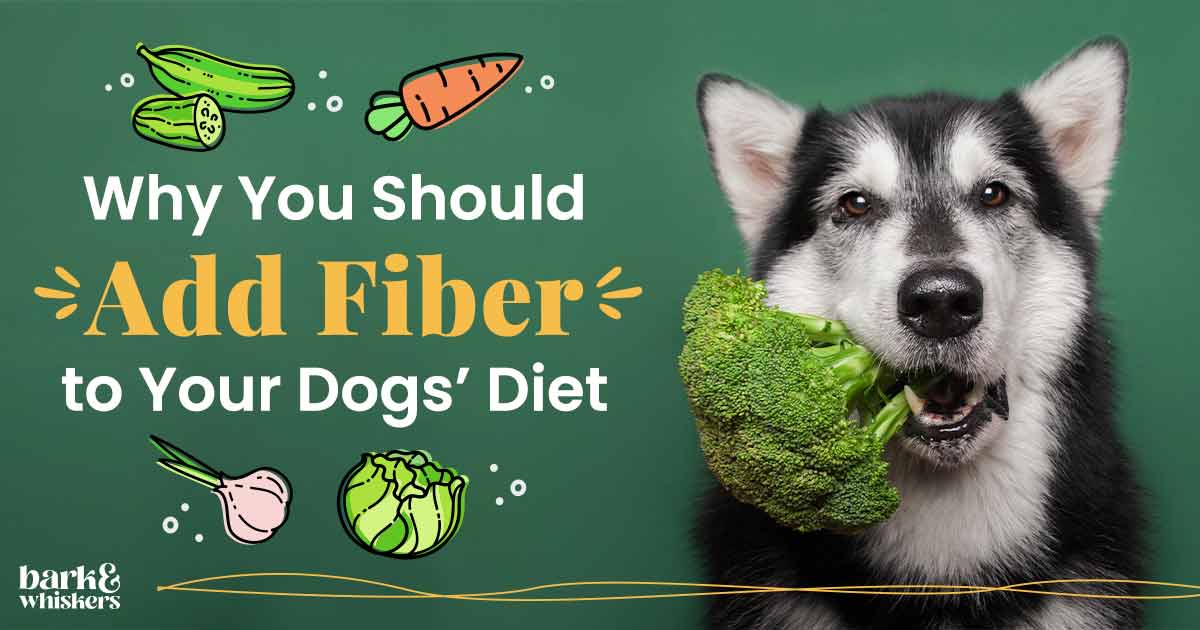Key Takeaways:
- Constipation in dogs can be caused by various factors including dietary issues, lack of exercise, dehydration, or underlying medical conditions.
- Common signs of constipation in dogs include straining to defecate, passing small or hard stools, decreased appetite, and discomfort.
- In mild cases of constipation, increasing fiber intake through diet or adding a stool softener can help relieve the condition.
- If constipation persists or is accompanied by other concerning symptoms such as vomiting or abdominal pain, it is important to consult a veterinarian for proper diagnosis and treatment.
- Preventing constipation in dogs involves providing a balanced diet with adequate fiber content, ensuring regular exercise, and promoting hydration through access to fresh water at all times.
Are you a dog owner who wants to ensure the health and happiness of your furry friend? If so, understanding the topic of constipation in dogs is essential. While it may not be a pleasant subject to discuss, delving into this issue can provide valuable insights that could save your dog from discomfort and potential health complications. Did you know that constipation affects up to 10% of dogs at some point in their lives? With such a significant number, it's crucial to equip yourself with knowledge on how to prevent and address this condition. In this article, we will explore the causes, symptoms, and effective remedies for constipation in dogs, empowering you to be the best caregiver for your beloved pet. So let's jump right in and unlock the secrets to keeping your dog's digestive system running smoothly!
Understanding Dog Constipation: Causes and Symptoms
Causes of Dog Constipation
Dog constipation can be caused by a variety of factors. One common cause is a lack of fiber in their diet. Fiber helps to regulate bowel movements and keeps things moving smoothly. Another cause can be dehydration, as not drinking enough water can lead to hard stools that are difficult to pass. Certain medications or medical conditions can also contribute to constipation in dogs.
Other causes may include a lack of exercise, which can slow down the digestive system, or ingesting foreign objects that get stuck in the intestines. In some cases, constipation may be a sign of an underlying health issue, such as an obstruction or tumor.
Symptoms of Dog Constipation
It's important to know the signs of dog constipation so you can identify if your pet is affected. Some common symptoms include:
- Straining or difficulty when trying to defecate
- Passing small, dry, or hard stools
- Frequent attempts to defecate without producing anything
- Lack of appetite or decreased appetite
- Lethargy or discomfort
If you notice any of these symptoms in your dog, it's important to take action and help relieve their constipation.
Signs of Dog Constipation: How to Tell if Your Pet is Affected
Observing Your Dog's Behavior
To determine if your dog is experiencing constipation, observe their behavior closely. Look for signs such as:
- Frequent squatting or straining without producing a bowel movement
- Crying or whimpering while attempting to defecate
- Visible discomfort or pain in the abdominal area
- A change in appetite or eating habits
- Lethargy or decreased activity levels
Examining Your Dog's Stool
Another way to assess if your dog is constipated is by examining their stool. Constipated dogs often pass small, hard, and dry stools that are difficult to eliminate. You may also notice a decrease in the frequency of bowel movements.
If you suspect your dog is constipated based on their behavior or stool appearance, it's important to take appropriate measures to alleviate their discomfort and promote regular bowel movements.
Home Remedies and Over-the-Counter Treatments for Dog Constipation
Increasing Fiber Intake
If your dog is experiencing constipation, one simple home remedy is to increase their fiber intake. Adding fiber-rich foods such as canned pumpkin (not pumpkin pie filling) or cooked vegetables like green beans can help soften the stool and promote regular bowel movements.
Incorporating Moisture into Their Diet
Dehydration can contribute to constipation, so ensuring your dog has access to fresh water at all times is crucial. Additionally, you can try adding moisture to their food by mixing it with warm water or low-sodium broth. This can help soften the stool and make it easier for them to pass.
Over-the-Counter Treatments
If home remedies don't provide relief, there are over-the-counter treatments available specifically formulated for dog constipation. These include laxatives or stool softeners designed for canine use. However, it's important to consult with your veterinarian before administering any medication to ensure the correct dosage and safety for your pet.
Know When to Seek Veterinary Help for Your Dog's Constipation
When Home Remedies Don't Work
If your dog's constipation persists despite trying home remedies, it may be time to seek veterinary help. A veterinarian can examine your dog and determine if there is an underlying medical condition contributing to the constipation. They may recommend further tests or prescribe medication to alleviate the issue.
Signs of Severe Constipation
In some cases, constipation can become severe and require immediate veterinary attention. Signs of severe constipation include:
- Persistent straining without producing any stool
- Lack of appetite or refusal to eat
- Vomiting or regurgitation
- Abdominal bloating or distension
- Lethargy and weakness
If you notice these symptoms in your dog, it's crucial to seek veterinary care as soon as possible to prevent further complications.
Dietary Changes to Prevent Constipation in Dogs: What to Feed Your Pet
Incorporating High-Fiber Foods into Their Diet
To prevent constipation in dogs, it's important to provide them with a balanced diet that includes high-fiber foods. Some examples of fiber-rich foods suitable for dogs include:
- Canned pumpkin (not pumpkin pie filling)
- Sweet potatoes or yams
- Brown rice or oatmeal
- Leafy green vegetables like spinach or kale
Ensuring Adequate Hydration
Proper hydration is essential for maintaining regular bowel movements. Make sure your dog has access to fresh water at all times and consider incorporating wet food into their diet, as it contains higher moisture content compared to dry kibble.
Feeding Small, Frequent Meals
Instead of feeding your dog one large meal, consider splitting their daily food intake into smaller, more frequent meals. This can help regulate their digestion and prevent constipation.
Are Certain Dog Breeds More Prone to Constipation? Exploring the Link
Anatomical Factors
Certain dog breeds may be more prone to constipation due to anatomical factors. For example, breeds with short or flat noses, such as Bulldogs or Pugs, may experience difficulty in eliminating stool efficiently due to their unique facial structure.
Dietary Sensitivities
Some breeds may have dietary sensitivities that can contribute to constipation. For instance, certain small breed dogs may have trouble digesting high-fat diets or foods with artificial additives, leading to digestive issues including constipation.
Lack of Exercise
Breeds that require less exercise or are prone to a sedentary lifestyle may also be more susceptible to constipation. Regular physical activity helps stimulate the digestive system and promotes healthy bowel movements.
While certain breeds may have a higher predisposition for constipation, it's important to remember that individual variations within each breed can also play a significant role. Maintaining a balanced diet, providing adequate hydration, and ensuring regular exercise can help prevent constipation in all dog breeds.
In conclusion, constipation in dogs is a common problem that can be caused by various factors such as diet and lack of exercise. It is important for dog owners to recognize the signs and take appropriate measures to prevent and treat constipation for their furry friends' well-being.
How long is it OK for a dog to be constipated?
There is no specific rule, but most veterinarians suggest scheduling an examination if your dog does not have a bowel movement for more than 48 to 72 hours.
Why is my dog trying to poop but nothing is coming out?
There are various factors that can contribute to constipation in dogs, with the most frequent ones being the ingestion of foreign objects like toys, gravel, plants, dirt, and bones that get stuck in the intestines. Other causes include a lack of physical activity and improper levels of fiber in their diet.
What if my dog hasn't pooped in 2 days?
If your dog has not had a bowel movement for more than 24 hours, it is important to have it examined by a veterinarian. If you are concerned about your dog experiencing constipation, contact your vet or, if it is outside of regular hours, the nearest emergency veterinary clinic. If it is not an urgent situation but you would still like some guidance, you can schedule an online video consultation with our veterinarians.
Will dog constipation resolve itself?
If your dog is experiencing constipation that doesn't go away after a day or two, keeps happening, or if you think your dog might have eaten something foreign, it's important to take them to the vet immediately for emergency treatment.
Can I give my dog MiraLAX for constipation?
Polyethylene glycol 3350, commonly known as MiraLAX® as well by many other trade names (see below), is used as a laxative to treat constipation for dogs and cats. It is also used to empty the intestines prior to diagnostic procedures.Mar 13, 2018
Does peanut butter help dogs with constipation?
Dogs often experience constipation, which can have various underlying reasons. If your dog is struggling to pass stool or their stools are dry and hard, they might be constipated. Peanut butter can be beneficial for relieving constipation in dogs since it contains beneficial fats, minerals, and vitamins.

















